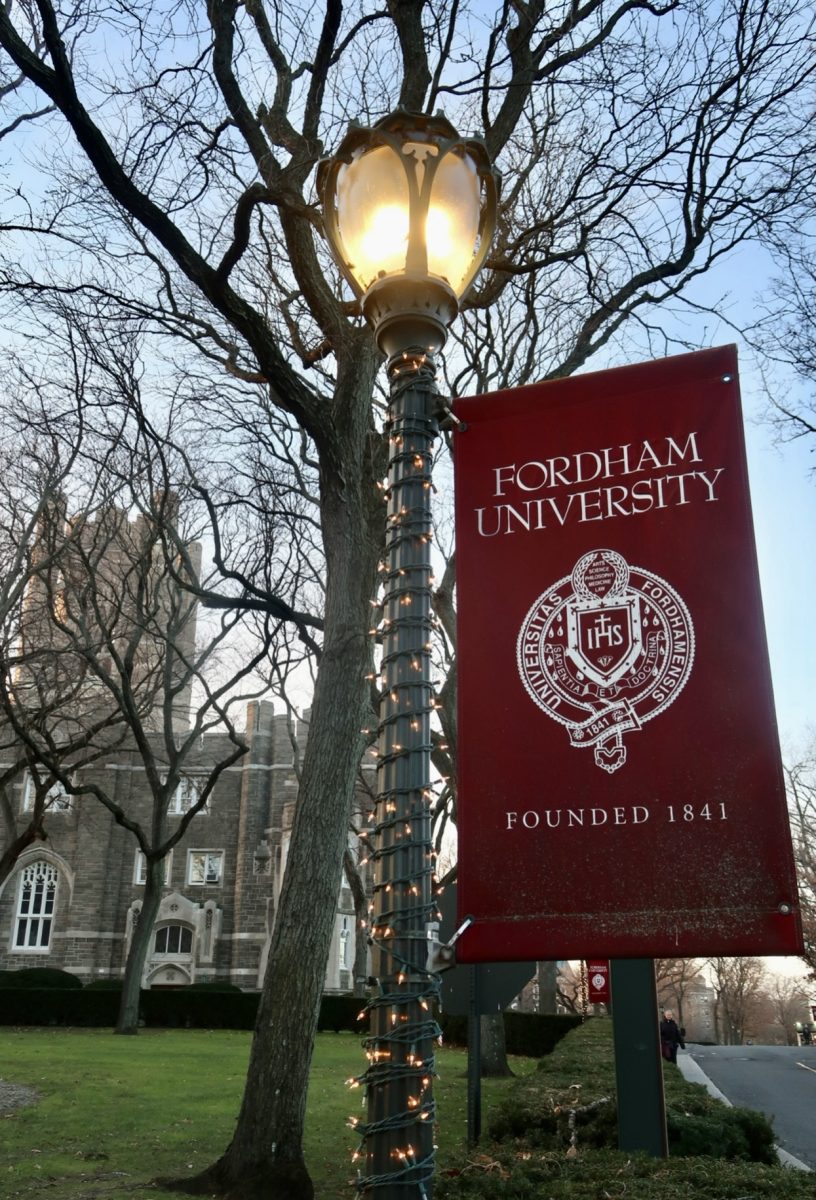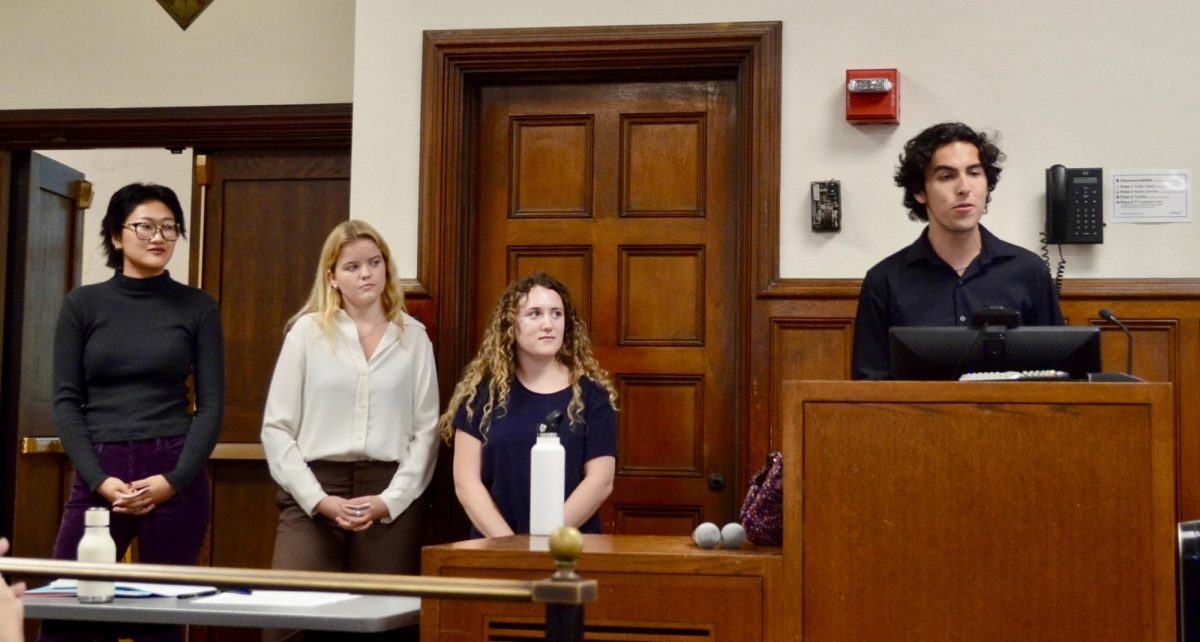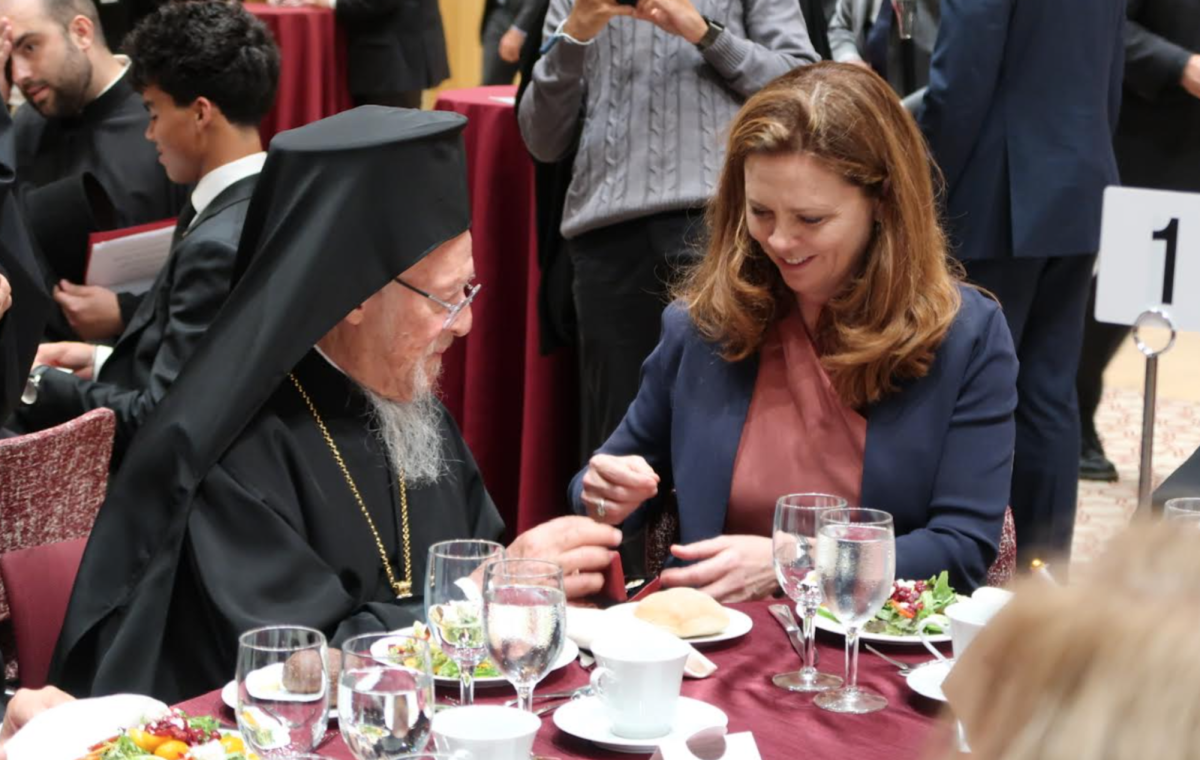Fordham University’s “Composition II” and “Advanced Composition II” curriculum is gradually becoming more research-based. Taking one of these courses is required as a part of Fordham’s core curriculum. Fordham states that “Composition II” is meant to “help students learn sound practices with respect to conventions of citation, quotation, paraphrase and documentation,” along with improving students’ skills in comprehending and writing about texts. One of the major projects of “Composition II” is a research paper that the students spend around a month on, in addition to developing the skills to properly write this paper throughout the year. This shift in the curriculum pushes the mandatory English course away from a literature focus and onto a more hands-on research approach, teaching students how to begin writing professionally.
Three first-year students, Julia Murphy, FCRH ’27, Hartley Loomis, FCRH ’27, and Grace McCarron, FCRH ’27, explain their thoughts on their own specific and in-depth research, as well as their opinions on the research focus in the curriculum.
Hartley Loomis was enrolled in “Composition II” with Professor Sarah Hildebrand during the fall semester of this year and wrote her paper on the increasingly intense forming of parasocial relationships between fans and celebrities through social media. Loomis explains that her interest in this topic formed throughout her high school experience, and when she came to Fordham, she was interested enough to write about it for the project.
Loomis’s thesis stated there was a contrast between the way in which these parasocial relationships are negatively regarded in media versus the reality of the relationships. She argued that they are not as harmful as the media makes them out to be. Loomis explains that while there are sensationalized cases of people going too far with a celebrity crush, these are one-off experiences. Usually, the only thing the parasocial relationship does is help make the fans happy and give the celebrity a financial boost. Further, it eliminates the possibility of rejection, which can be very comforting to a number of people. Loomis enjoyed being able to research a topic she found interesting in an immersive way that allowed her to develop an in-depth understanding of not only parasocial relationships but also the process of researching.
“[I learned] how to go into more detail with my writing,” said Loomis.
Grace McCarron took “Advanced Composition II” with Professor Meghan Dahn during the fall semester. McCarron did her research on chronic traumatic encephalopathy (CTE), a brain disease caused by multiple or severe concussions. Her research focused specifically on how CTE relates to football and other high-contact sports. McCarron formulated the thesis of her research revolving around the idea that the National Football League (NFL) has taken measures to try to reduce CTE from occurring. According to McCarron, these measures include penalizing hits to the head and constant checks and changes of equipment to try and ensure the safety of the players.
The course emphasized finding as many specific details regarding the research topic as possible to formulate a unique thesis in the same way that professional researchers do. McCarron had the chance to look at specific case studies like former tight end for the New England Patriots Aaron Hernandez’s CTE, which she states sparked discussions of CTE as an increasing concern to high-impact sports players. This is a topic that she says is of “pressing concern” because CTE is something that affects a person for the rest of their lives in a very prominent way and exists after their football career. McCarron explains that this topic has always been something she is interested in, and furthermore, she was excited to explore the topic in a journalistic fashion.
The entire course focuses on research, leading up to the first-year students conducting their own research. Professors do this by embedding techniques and ideas about how to write in a manner that incorporates sources and uses outside evidence throughout the semester. The paper was gradually worked on over the course of the entire semester, according to Loomis. Additionally, Loomis states that because of the overarching focus on research, the deadline seemed manageable instead of inducing a sense of impending doom.
“There was much less work to do by the time the deadline actually rolled around,” said Loomis.
Both the research topics and thesis that Loomis and McCarron explored were done thoroughly, emulating research that they may be doing in the future of their undergraduate career or after they graduate from Fordham. The point of the research-focused course is to dig into a topic of interest, allowing students to learn about a topic they already enjoy.
McCarron explains that this research leans toward investigative journalism, which is “more connected to the kind of writing I am interested in.” As a journalism major, McCarron said that writing in a research-driven way positively impacted her ability to write for her future aspirations and career goals.
Julia Murphy took “Composition II” with Dahn and wrote about how the general American public responded and were persuaded on social media by QAnon, a right-wing, politically charged conspiracy group.,. Murphy examined how the group opened up an intersection between social media and politics.
“[Through] the variety of sources I got to choose, it was easier to learn about the topic,” said Murphy. “It was easier for me to write and be motivated to write when I was interested in the topic.”
The curriculum allows students to do research in a field and topic that they find interesting, which motivates them to do a thorough job with their research. Introducing undergraduate research to first-year students early pushes them to understand the research process, how long it takes to do research and introduces them to what it takes to write a research paper. These methods push a deeper understanding of the research to the students.
The in-depth look at the research process put a semester-long emphasis on flushing out the process of doing and writing one’s own research. It offers skills to students in all majors, providing them with a good foundation for writing.
“Writing the research paper was more helpful for the types of papers I’ll be writing in the future,” said Loomis.
Whether or not the student is in a STEM, journalism or English major, the research curriculum that is pushed in “Composition II” has been seemingly positive in terms of how students are learning through the curriculum to write in different and untraditional ways compared to a standard English class.









































































































































































































